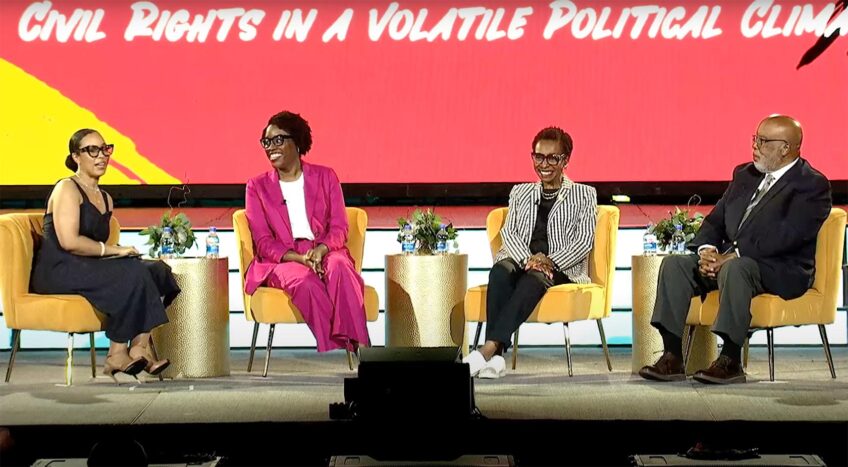Report calls for increase in rental assistance
State program reaches fewer than half of those eligible
A new report from The Boston Foundation, Metro Housing and other Boston nonprofits is arguing for increased funding and a “universal approach” to Massachusetts’ chief rental assistance voucher program.
The Massachusetts Rental Voucher Program, or MRVP, provides partial rental vouchers to families, individuals or households meeting certain eligibility requirements, including earning less than 80 percent of median area income — though typical recipients, the report says, tend to earn less than 30 percent of that measure.
The new report, titled “A Right to Rental Assistance in Massachusetts,” argues that the state’s rental assistance program is, on the one hand, a critical lifeline to Massachusetts residents struggling to maintain housing, and on the other, woefully underfunded and underequipped to serve qualifying households.
Currently some 250,000 Massachusetts households receive rental assistance through a mixture of state and federal programs, while the number of households who “already meet or exceed eligibility requirements,” the report estimates, is approximately 585,000, more than double the number receiving any state or federal rental assistance.
The report calls for Massachusetts to move toward a universal approach to state rental assistance — in other words, one more like that of federal programs such as Social Security or the Supplemental Nutrition Assistance Program (SNAP), that guarantee benefits to all eligible applicants, rather than forcing applicants to compete for a drastically limited pool of existing rental vouchers.
“The difference is, you may be eligible, but we only have a certain number of vouchers. And once those vouchers are issued, you are still eligible, but you wait for it,” says Chris Norris, executive director of Metro Housing.
One set of waitlists for MRVP vouchers, the report notes, has been closed since 2014, a year in which a single organization received some 10,000 applications for 54 vouchers.
The report also attempts, apparently for the first time, to put a price tag on the prospect of fully funding the program to provide rental assistance to all qualified households statewide — that cost being an estimated $3.2 billion per year.
It is, Norris acknowledges, a daunting figure.
“We know that that’s a large number, and we are not expecting to get there tomorrow,” says Norris. “But at least we have a goal, and we know who isn’t being served, and we know what the need is, because we now have the data that didn’t exist before.”
The MRVP program is particularly important for households of color, the report adds, noting that “nearly half of Black families and 56 percent of Hispanic families in Massachusetts are eligible for rental assistance,” compared to fewer than one in five white households.
Soni Gupta, associate vice president of neighborhoods and housing at The Boston Foundation, says the report shows that rental vouchers are one of the most effective tools at the state’s disposal to address a wide range of challenges individuals and families face as they navigate an increasingly tight housing market.
“The message is that there are enormous broad-reaching benefits to a universal rental voucher program. We know that,” says Gupta. “A universal approach would improve housing stability, reduce homelessness, and address racial inequities. It’s imperative that we at least try, at least strive, to get to a place where we can create a universal rental program in the state.”
State Sen. John Keenan, who co-chairs the legislature’s Joint Committee on Housing, says he supports expanding the state’s rental voucher program, citing benefits to the commonwealth on top of helping households stay housed.
“People can’t afford housing, and they move out of the commonwealth, and that denies us workers,” says Keenan. “And with a very expensive housing market, it makes it very difficult to draw workers to the commonwealth at every level.”
Keenan says that despite the high price tag for adopting universal rental assistance, there is an appetite within the legislature for action, and he expects legislation expanding the MRVP program to come before his committee in the coming session.
“I think there’s consensus about the great need to meet the housing demand and the great need to build more affordable housing, [and] I think there’s consensus around the fact that we have to do more in terms of rental assistance,” Keenan says. “And the incoming administration has clearly made housing a priority. That, I think, is recognition on [Governor-elect Maura Healey’s] part that this is an issue that can’t go on unaddressed. It has to be fixed.”
The new report also cites “incomplete data collection” and “organizational inefficiency” within the MRVP program. It encourages the state to “codify MRVP [and] streamline voucher administration,” noting the program as administered has not kept close track of how many eligible households are either never served by the program or do not wind up applying for assistance for which they are already eligible.






